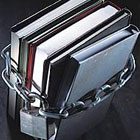16 Nov 2012 | Uncategorized
Index has signed a petition opposing the British government’s move to replace GCSEs with the English Baccalaureate, excluding creative subjects from the core qualification at 16.
Many leading figures in the arts have voiced their dismay at this short-sightedness, pointing out the successes of the arts in the UK in both social and economic terms. We want to add our voice because the arts are central to the free exchange of ideas. Relevant, robust arts and culture are vital to a healthy, participatory democracy.
Access to the arts is important. Arts education in schools allows all young people to learn skills to express themselves and so be able to participate directly in shaping their world. By downgrading the arts, the government is showing indifference to their value as a means to explore diversity and enlarge sympathies.
Index will be writing a submission to the open consultation on Reforming Key Stage 4 qualifications, which closes on 10 December.
9 Mar 2012 | Middle East and North Africa
Last year, a number of students from Bahrain Polytechnic were expelled from the university for “participating in unlicensed gatherings and marches”. Targeting anti-government students, evidence for the expulsions was mostly obtained from social media websites such as Facebook.
21 year-old Asma Darwish was among the 63 students expelled from the university in June 2011, after encouraging people to participate in unauthorised marches against the regime. In a subsequent interrogation from a committee of members from Bahrain Polytechnic and the Ministry of Interior, Darwish was shown Facebook activities that the committee had obtained from her account, including status updates and comments.
After an external review of the cases, 32 of those, including Darwish, were allowed to return to Bahrain Polytechnic, but following her return, she was repeatedly harassed and threatened by fellow students, forcing her to leave Bahrain and flee to Switzerland.
Darwish described initially being excited about her return to the university in late September 2011, but soon became aware that things were not going to be easy.
Upon her return, she was asked to sign a code of conduct saying she would not get involved in activities with a political nature, and recalls discussing the code with an employee whose responsibility it was to obtain signatures from the returning students.
She said: “I went through a discussion with her regarding some of the points in the code, she had no answers except “this is the law in Bahrain, we must follow the constitution. I told her several times that the constitution was the problem.”
Darwish was forced to re-sit courses she had been expelled from, and asked to pay her tuition fees again. She soon noticed that students were behaving differently around her.
“I went to my classes, and I saw many students staring at me. In the four months that I was on the polytechnic campus before I had to leave Bahrain, I was harassed more than once by some of the students who were loyal to the regime. Students would sing pro-government songs when they saw me passing.”
She described one occasion when a fellow student began chanting “we shall die for you Abu Ali”, referring to Prime Minister Khalifa bin Salman, known as Abu Ali. On a different occasion, Darwish recalls another student staring at her until she was out of sight.
“I have always ignored these situations. But I was fed up of the polluted atmosphere that was not anything near an educational one. I decided to take my chance and report the harassment though I knew it was risky.”
Reporting the case sparked many concerns. Darwish explained it became apparent that the pro-government students who had been involved in her harassment could have her arrested, purely on the basis of her differing political views. She was determined to take her case further, despite the risks.
But it was not just through concern for herself that she progressed the case. Not alone in receiving harassment, Darwish wanted to help others who were being affected by similar treatment.
“So many other excellent, talented and creative students face difficulties learning in such an environment. Most of them don’t even enjoy studying at the Polytechnic after all they have gone through. Many are still harassed.”
Very few of the students report the cases of harassment: “Most of the students felt unsafe to come forward and report a case, saying “I prefer being harassed in campus than arrested and harassed in prison for reporting a case against a pro-government”.
She added: “The students who stand for democracy not only at Bahrain polytechnic, but other universities like the University of Bahrain are facing hardship getting the knowledge and education they deserve. Those students are being constantly targeted by the regime, through arrests, torture, and lack of appreciation and respect.
To this day, Darwish has not heard back from Bahrain Polytechnic on her case. Students who are disrupting the learning of others are still on campus, but she hopes that those who are being harassed will speak out. She advised students to write and talk about their harassment. “Your voice shall be heard,” she said.
Despite being forced to leave Bahrain in January 2012 and seek asylum in Switzerland, she was still subjected to phonecalls, threatening her with arrest, rape and murder. She cannot go back to Bahrain any time soon for fear of being persecuted.
“I left everything there and fled. I left my family, my friends and a country that I am in love with. I wanted to be a change maker, maybe I couldn’t while I was in Bahrain. But I promise that I will do my best to see the smile on the faces of my people in Bahrain once again.”


